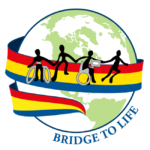Once the Teacher in Residence has completed her/his stay in the United States, a follow-up visit is planned and a team of professionals gathered to travel to their home country to conduct workshops, provide training, present at conferences, meet with professional groups and help establish the resident as a local resource.
The Teacher in Residence is responsible for conducting a needs assessment in consultation with her/his colleagues and with those who have committed to helping in the dissemination process. This needs assessment should identify the most relevant topics and most pressing needs for training required by professionals and parents in the home country. When this has been determined, the information is given to the Executive Director and the Director of Outreach and Technology for consideration as to feasibility for providing the requested topics and training. When a consensus has been achieved as to the topics and training, the Executive Director and Director of Outreach and Technology put together a team of professionals who will travel to the Teacher in Residence’s home country to provide the training. Planning for the on-site visit include determining the most effective delivery of the information/training. This can include, but is not limited to the following:
Conferences
Conferences are excellent for reaching a large number of individuals. Some critical elements of a conference for an international audience include the speakers always giving time for audience questions and answers, professional translators for all conference sessions and clearly establishing expected learning outcomes of the sessions. It is always helpful if the speakers have been given an opportunity to visit local school/clinical programs in order to better understand the educational environments and to gear their presentations to fit the needs of the participants. Note: In some cultures, asking questions or making comments in a formal setting such as a conference or lecture is against the cultural norm, so it is incumbent on the speaker to set the stage for open communication.
Workshops
Whenever possible, small interactive workshops offer a more intimate setting for providing training and allow for more participation. It is important to set specific learning outcomes for the sessions and to respect cultural boundaries during the workshops. Workshops in which the participants develop materials or locate resources they can use in their practice are particularly useful.
Demonstration Teaching/Coaching
In some situations, the Teacher in Residence requests that the visiting professional team work directly with students on particular strategies or equipment so that their colleagues can observe its implementation within the context of their educational program. This gives the visiting team an opportunity to explain what they are doing at the same time they are implementing the strategy and to answer questions from the observers. Frequently, the teachers and/or therapists will ask the visiting team for coaching as they attempt to implement a new method or integrate a technique into their curriculum.
Lectures
Whenever possible, the Teacher in Residence is encouraged to form a professional relationship with local universities. This strengthens their dissemination efforts by providing access to students who are interested in working with students with special needs. The visiting professional teams have frequently lectured into university classes in the educational departments, the speech and language clinics and programs, the medical division and the rehabilitation programs.
School Visitations
It is important for the visiting team to visit representative schools and programs and to see the teachers/therapists in action. This provides a better understanding of the educational situation including the school environment, the curriculum, materials in use, available resources and to note cultural influences on communication and the educational program.
On-Going Consultation
One goal of the Teacher in Residence program is to establish a strong professional network among the various Teachers in Residence so that they can support one another’s efforts at disseminating the strategies and methodologies they have learned through their experience at The Bridge School.
Teachers in Residence are encouraged to join and contribute to ISAAC BUILD RESOURCES, a Facebook page that links individuals and organizations in developing nations who serve children and adults who use augmentative and alternative communication by providing resources, offering advice and promoting professional development opportunities.
Repeat follow-up consultation is done electronically through web conferencing technology and in conjunction with other agencies who provide outreach support to developing countries.
Participation in The Bridge School’s AAC By the Bay International Conference
Every other year The Bridge School conducts an international conference featuring internationally recognized leaders in the field of special education and communication. With the support of Cisco, Inc., the conference is live-streamed to off-site locations hosted by interested individuals. The Teachers in Residence are expected to participate in this event by hosting an audience for the conference in their home country.







